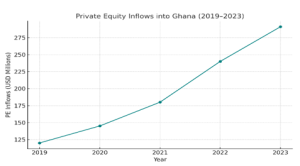
By Richard A. WIAFE
Private equity (PE) and venture capital (VC) have become increasingly vital instruments for financing high-growth enterprises, especially in regions where traditional financial intermediation remains underdeveloped or exclusionary.
In many developing economies, access to long-term capital through conventional banking systems is often limited by stringent collateral requirements, high interest rates, and short loan tenures—factors that disproportionately affect startups and SMEs.
Consequently, alternative investment vehicles such as PE and VC have emerged as viable solutions for bridging the capital gap while simultaneously introducing strategic guidance, governance support, and innovation incentives into growing firms.
In Sub-Saharan Africa, the role of private equity is evolving rapidly, moving from niche capital deployment to a broader developmental finance mechanism. Countries like Nigeria, Kenya, South Africa, and increasingly Ghana are becoming attractive destinations for private capital due to their growing populations, expanding consumer markets, and improving regulatory regimes.
According to the Africa Private Capital Activity Report (AVCA, 2023), West Africa accounted for 28% of all PE deals in Africa in 2022, with Ghana being among the top recipients of PE inflows in the region. This growth is driven by a combination of political stability, a burgeoning middle class, digital transformation, and a vibrant entrepreneurial ecosystem.
In the Ghanaian context, private equity is now widely regarded as a transformative force for industrialization and economic diversification. As traditional sectors such as mining and oil plateau in terms of job creation and innovation, PE is increasingly targeting high-potential segments like agriculture, healthcare, education, logistics, renewable energy, and fintech.
These sectors not only present strong return potential but also align with Ghana’s broader development goals, including those articulated in the Ghana beyond Aid Agenda and the Ghana CARES ‘Obaatan Pa’ programme.
Moreover, PE investment goes beyond capital injection. It often includes active participation in corporate governance, risk management, and market expansion—components that are particularly crucial for startups and small to medium enterprises (SMEs) in emerging markets. The partnership-oriented model of PE also facilitates knowledge transfer, talent acquisition, and adherence to global environmental, social, and governance (ESG) standards. For Ghanaian firms aiming to scale across borders or tap into international markets, these attributes are game-changing.
Despite these promising developments, the PE ecosystem in Ghana is not without its challenges. Legal and regulatory bottlenecks, a limited pool of institutional investors, and underdeveloped exit markets continue to constrain the full realization of private equity’s potential. Nevertheless, with deliberate policy support, better access to domestic capital, and growing interest from international limited partners (LPs), Ghana is well positioned to consolidate its gains and become a competitive hub for private capital deployment in West Africa.
This article explores the trajectory of private equity in Ghana by examining its market trends, regulatory environment, operational challenges, and developmental impact. It also situates Ghana within the broader African investment landscape and offers strategic recommendations for strengthening the sector’s contribution to inclusive and sustainable economic growth.
Ghana’s Private Equity Market: Overview and Trends
As of 2023, Ghana’s private equity sector was valued at around USD 6.8–7 billion in total assets under management, with about 35 active PE/VC firms either operating directly or through regional offices (ICLG, 2023). Ghana stood at 10th place among African nations for PE inflows, bringing in over USD 291 million in private equity just in 2023 (ABC News Ghana, 2023).
Institutional and Regulatory Environment
Several public institutions are pivotal in shaping Ghana’s PE landscape, including the Venture Capital Trust Fund (VCTF), Development Bank Ghana (DBG), and the Securities and Exchange Commission (SEC). However, despite their efforts, Ghana still lacks a comprehensive legal framework for limited partnerships—an internationally favored structure for PE/VC—which forces many funds to set up shop in Mauritius or other locations (B&FT, 2022).
Challenges Facing PE Financing in Ghana
Ghana’s PE scene faces several hurdles, including legal and regulatory obstacles, limited exit strategies, macroeconomic volatility, hesitance from institutional investors, and resistance from entrepreneurs. The lack of a limited partnership law and underdeveloped capital markets are particularly challenging for fund managers and investors (ICLG, 2023; GNA, 2024).
Regional Comparisons
When you stack Ghana up against Nigeria, Kenya, and South Africa, it’s clear that Ghana’s private equity (PE) scene is on the smaller side and grappling with more legal challenges. In contrast, Kenya and South Africa boast stronger legal frameworks and a higher level of participation from institutional investors, which makes them more appealing to PE fund managers (AVCA, 2023).

“Private Equity Inflows into Ghana (2019–2023)”
Case Examples of Private Equity Success in Ghana
Several high-profile transactions have demonstrated the potential for private equity to drive impact in Ghana. One notable example is PEG Africa, a solar energy company that secured $25 million from CDC Group (now BII) in a Series C round. This investment enabled the firm to expand its pay-as-you-go solar products across West Africa, directly contributing to the UN Sustainable Development Goals (AVCA, 2022).
Another example is Injaro Agricultural Capital, which has invested in agribusinesses including AgroCenta and Burro Ghana, facilitating market access for smallholder farmers. These deals illustrate how PE can target social impact while delivering competitive returns. The Tide Africa Fund, led by TLcom Capital, and the Future Africa Collective, though based regionally, have also shown growing interest in Ghana’s tech and logistics sectors.
These cases demonstrate the importance of sectoral specialization and impact alignment in making Ghana more attractive to global funds.
Future Outlook and Recommendations
Ghana’s private equity market has strong future potential, particularly if regulatory reform and domestic capital mobilization are prioritized. The Limited Partnerships Bill, once passed, is expected to unlock local domiciliation of funds, reduce tax inefficiencies, and attract more institutional capital. Simultaneously, initiatives by Development Bank Ghana—including a fund-of-funds model—are aimed at de-risking early-stage investments and encouraging private-sector participation.
To build a more vibrant ecosystem, stakeholders should:
- Encourage pension fund participation through investment guarantees and education.
- Deepen local capital markets to facilitate exits via IPOs or structured secondary sales.
- Create public-private working groups to align regulation with investor expectations.
- Promote diaspora investment vehicles tailored to the Ghanaian entrepreneurial context.
If these measures are implemented, Ghana could position itself as a hub for responsible, growth-oriented capital in West Africa.
. Impact on SMEs and Job Creation
One of the most powerful arguments for scaling private equity in Ghana lies in its potential to transform SMEs—the backbone of the economy. SMEs account for over 85% of employment in Ghana and nearly 70% of GDP, yet they often struggle to access the long-term growth capital needed to professionalize, digitize, and scale operations (IFC, 2022).
Private equity provides not just capital, but strategic input—supporting SMEs with governance structures, market expansion, and human resource development. Research by Dalberg (2023) shows that PE-backed SMEs are more likely to formalize, pay taxes, and create decent jobs compared to their counterparts reliant on informal financing.
In this light, PE is more than an investment tool—it is a developmental lever. Government and development finance institutions (DFIs) should treat SME-focused PE as a key component of national industrial policy.
Gender and Inclusive Private Equity
Despite rising awareness, women-led enterprises still receive a disproportionately low share of private equity capital in Ghana and across Africa. A 2023 report by GenderSmart and AVCA found that only 7% of PE/VC funding in Africa went to female-led businesses.
Closing this gap requires intentional strategies, such as:
- Establishing gender-lens investment funds.
- Requiring gender disaggregation of investee data.
- Offering incentives for gender-balanced boards and leadership in portfolio firms.
Locally, initiatives like Impact Investing Ghana and African Women in VC are advocating for more inclusive funding practices. Globally, institutions like the 2X Challenge are backing gender-smart funds operating in West Africa. Ghana has the opportunity to lead in inclusive PE by aligning investment with national gender equity objectives.
The Role of ESG and Sustainable Investment
Environmental, Social, and Governance (ESG) criteria have become standard practice in global investing, and Ghana’s PE landscape is no exception. Most international funds now apply ESG screening and reporting as part of their due diligence and portfolio management. This includes commitments to decarbonization, responsible employment practices, and anti-corruption policies.
In Ghana, ESG is becoming a differentiator, especially for DFIs like Proparco, IFC, and Norfund, which mandate sustainability metrics. Funds that integrate ESG are more likely to attract blended finance, concessional capital, and public-private partnerships.
Additionally, sustainability-focused funds like the Renewable Energy Performance Platform (REPP) and Responsibility’s Climate Fund are entering the market. Aligning national policies—such as Ghana’s National Green Jobs Strategy—with private capital can foster an ecosystem where sustainability and profitability go hand in hand.
Conclusion
Private equity is no longer a niche segment in Ghana’s financial landscape—it is a growing force for innovation, job creation, and institutional maturity. However, the sector remains constrained by regulatory gaps, a limited exit environment, and macroeconomic volatility. Unlocking the full potential of PE requires targeted reforms, capacity building, and inclusive policies that align capital with national development goals.
As Ghana prepares to position itself as a regional investment hub, attention must shift from mere capital attraction to ecosystem building. This includes empowering SMEs, integrating ESG, supporting women-led ventures, and fostering transparency. With the right mix of policies and private initiative, private equity can become a true engine of sustainable development in Ghana.
References
- African Private Equity and Venture Capital Association (AVCA). (2022). PE/VC in West Africa Report.
- AVCA. (2023). Africa Private Capital Activity Report 2023. https://avca.africa
- B&FT. (2022). Legal regime affecting private equity funds in Ghana. https://thebftonline.com
- Dalberg. (2023). Catalytic Capital for SMEs in West Africa.
- Development Bank Ghana (DBG). (2024). DBG launches Fund-of-Funds to support VC/PE firms. https://gna.org.gh
- GenderSmart & AVCA. (2023). The Gender-Smart Investing Landscape in Africa.
- Ghana News Agency (GNA). (2024). DBG to support venture capital and private equity industry. https://gna.org.gh
- Ghana Venture Capital and Private Equity Association (GVCA). (2025). 4th Annual Conference Report. https://gvca-ghana.org
- ICLG. (2023). Private Equity Laws and Regulations – Ghana 2023. https://iclg.com
- IFC. (2022). SME Finance Gap and Capital Solutions in Sub-Saharan Africa.
- Impact Investing Ghana. (2023). National Impact Investment Strategy for Ghana.
- World Bank. (2023). Doing Business and Investing in Ghana 2023.
The post Private equity financing: Trends, challenges, and regional comparisons appeared first on The Business & Financial Times.
Read Full Story

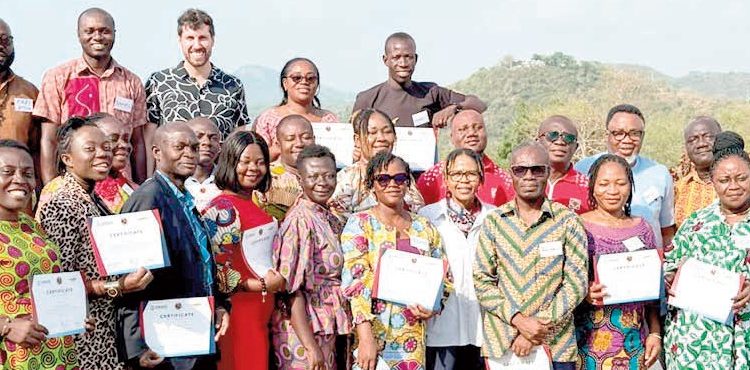

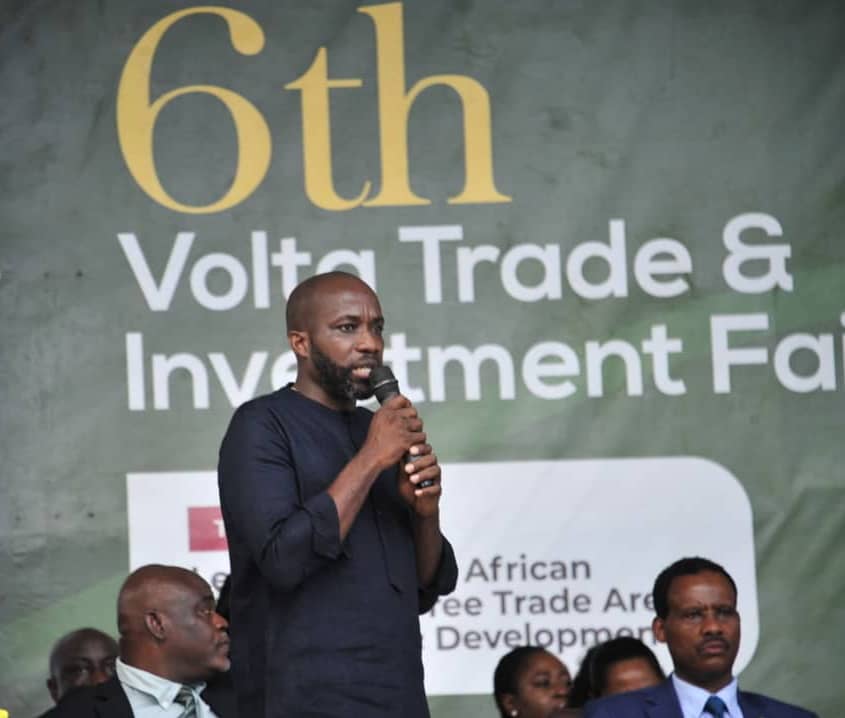
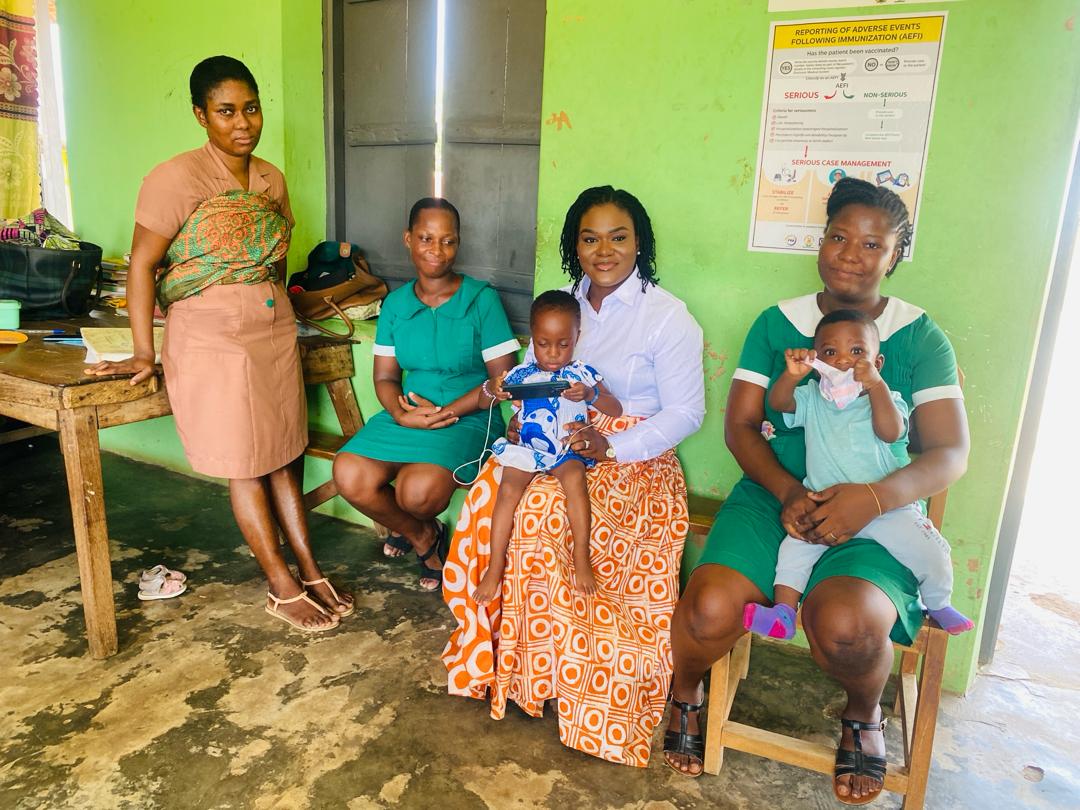



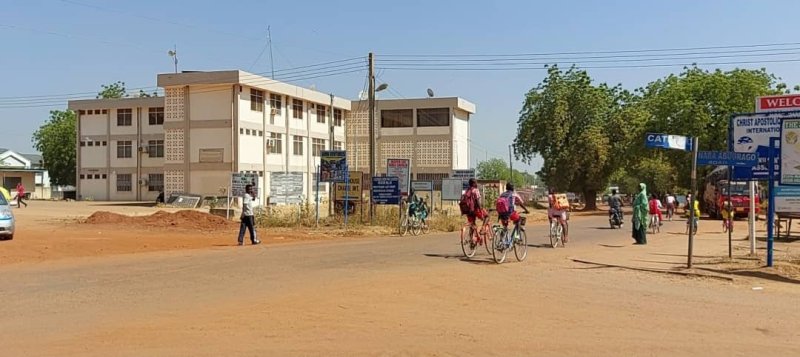

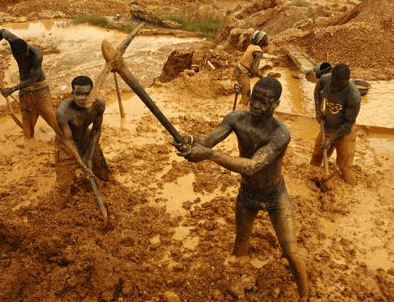




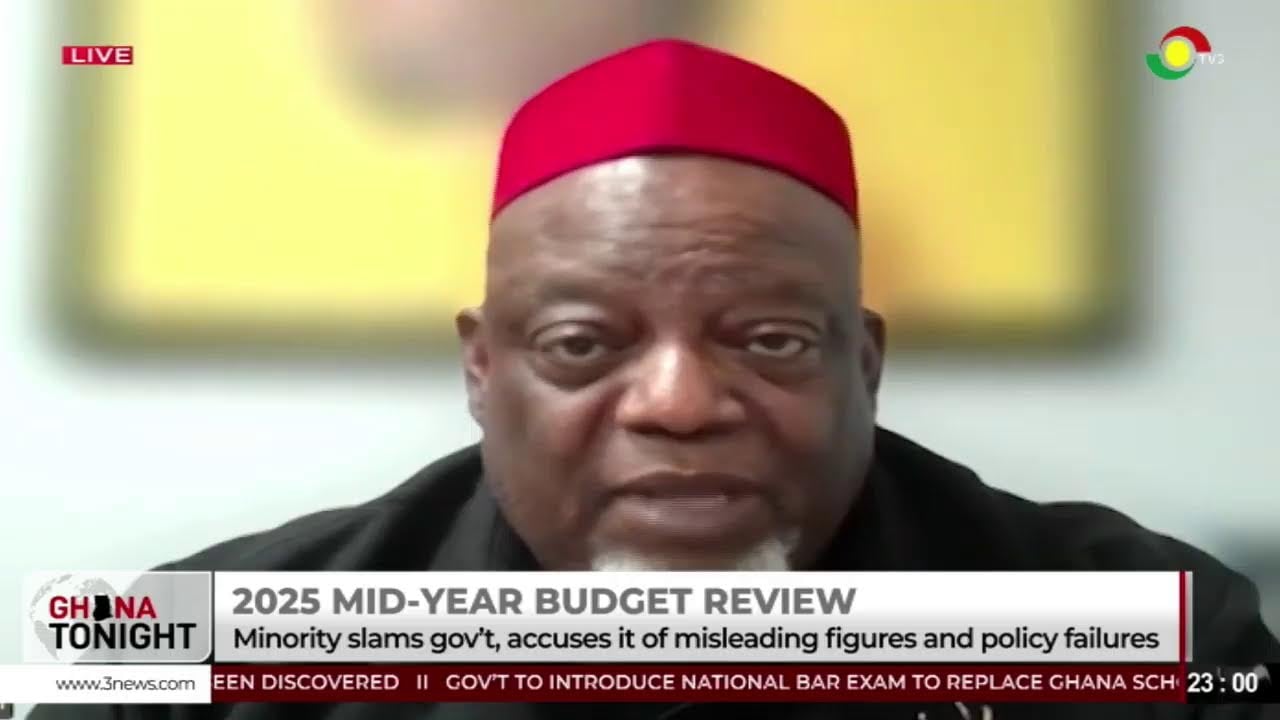




Facebook
Twitter
Pinterest
Instagram
Google+
YouTube
LinkedIn
RSS